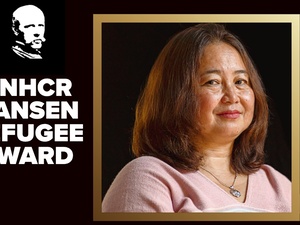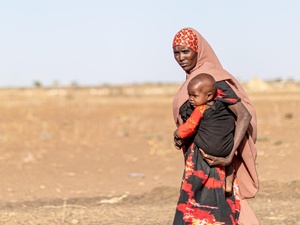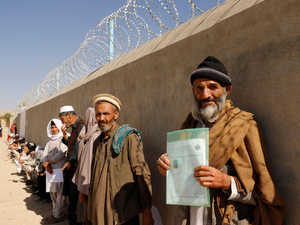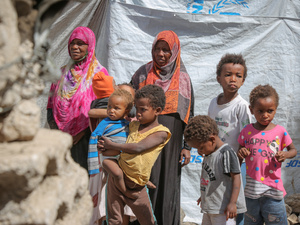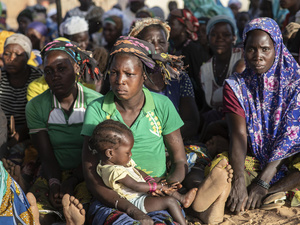UNHCR warns of risks to civilians in Central African Republic as refugee numbers rise
UNHCR warns of risks to civilians in Central African Republic as refugee numbers rise

These people were internally displaced in Central African Republic in an earlier outbreak of fighting.
BANGUI, Central African Republic, March 15 (UNHCR) - The UN refugee agency said on Friday that renewed fighting in Central African Republic was threatening the civilian population in the south-east of the country and compromising UNHCR's access to refugees and internally displaced people.
On Monday, a peace agreement signed two months ago was further compromised when Seleka rebels attacked and captured the town of Bangassou. The rebels have been advancing eastwards towards the town of Zemio, where 3,300 refugees from Democratic Republic of Congo (DRC) reside.
"As well as presenting a security risk, the Seleka advance is further compromising our access to refugees and internally displaced populations. UNHCR and other humanitarian agencies have been forced to temporarily relocate some staff to Bangui, the capital. Although we still have some staff in place, services for refugees are nonetheless reduced," spokeswoman Fatoumata Lejeune-Kaba said.
She said clashes since December between Seleka forces and the armed forces of the Central African Republic (CAR) had "seriously restricted humanitarian access to some 5,300 refugees and over 175,000 internally displaced persons [IDPs]."
Meanwhile, the number of civilians fleeing to neighbouring DRC has risen to 29,000. Chad has also received some 5,000 refugees since the beginning of the crisis. People continue to cross into southern Chad following the rebel capture of Sido on March 1.
Over the past two months, UNHCR and some of its key partners have conducted evaluation missions to nine of CAR's prefectures. "Most of the internally displaced people we spoke to reported that they were living in fear and insecurity: 88 per cent of community members surveyed told us they do not feel safe," Lejeune-Kaba said.
"In addition, 99 per cent of the 168,000 children who went to school before the crisis are no longer in school. Even more worrying, one in five of the children out of school is believed to have been forcibly recruited by armed groups," she added.
The evaluation missions found that in most cases civilians have extremely limited access to food and basic services because of the combination of continuing armed violence, human rights violations and forced displacement. People are also at risk of physical assault, rape, and looting and extortion. Humanitarian workers are also facing harassment, including theft and looting of their office premises.
"UNHCR reiterates its call to the government and the Seleka rebels to ensure the protection of civilians and to facilitate access for humanitarian aid to people in need," the UNHCR spokeswoman said.
By Djerassem Mbaiorem in Bangui, Central African Republic


